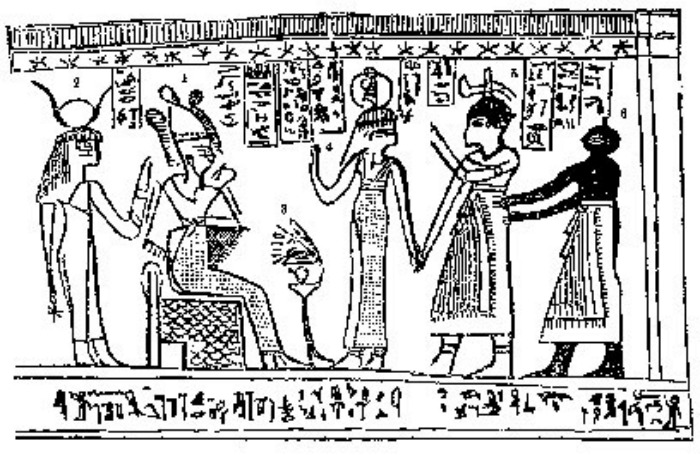Question
Gramps,
This is in regards to your post about those not paying tithing being burned. I learned in institute that this was a commonly misunderstood scripture. Because the revelation was given to Joseph while the law of consecration was being practiced (Sept. 1831), that it didn’t necessarily apply to our current way of tithing and consequent judgement. Is this true?
Andy
Answer
Dear Andy,
I’m afraid you’ve been misinformed. Not about the context of the revelations given on tithing, but on their modern application.
Historic Readings
Section 119 of the Doctrine and Covenants contains the modern definition of tithing. The heading gives us the following context:
“The law of tithing, as understood today, had not been given to the Church previous to this revelation. The term tithing in the prayer just quoted and in previous revelations (64:23; 85:3; 97:11) had meant not just one-tenth, but all free-will offerings, or contributions, to the Church funds.”
So back in 1831, the Lord told the prophet that “it is a day for the [giving of freewill offerings] of my people; for he that [gives freely] shall not be burned at his coming”. But then in 1838, the Lord defined a specific offering that He required of His saints from that time forward. They “shall pay one-tenth of their interest annually” (D&C 119:4). I’m sure you can see how a specific kind of free-will offering falls under the umbrella of general contributions to Church funds. If any correction needs to be made in the way these verses are understood, it should be inclusive with fast offerings and humanitarian funds in the list – not to the exclusion of tithing.
Sometimes Joseph Smith would receive a revelation, and the saints would ask him to clarify some parts of it (this is how we know “hot drinks” are “tea and coffee“). Wouldn’t it be great if we could ask Joseph whether or not these verses apply to modern tithing and not the obsolete usage of the term? Well, unfortunately Joseph’s dead (or fortunately, his life was rough enough as it was. I wouldn’t wish an extra sesquicentennial on him), so we can’t ask him. In his place today is a prophet who wears His mantle and speaks for the Lord today. So let’s see what a modern “Joseph” has to said on this verse.
Modern Readings
“Glorious is the promise of the Lord concerning those who pay their tithes. He says in modern revelation that they ‘shall not be burned’. … While tithing is paid with money, more importantly it is paid with faith. I have never met an individual who paid an honest tithe who complained about it” (Gordon B. Hinckley, “Let Virtue Garnish thy Thoughts Unceasingly“, April 2007 Conference).
“To every man and woman, to every boy and girl, to every child in this Church who pays an honest tithing, be it large or small, I express gratitude for the faith that is in your hearts. I remind you, and those who do not pay tithing but who should, that the Lord has promised marvelous blessings (see Mal. 3:10–12). He has also promised that ‘he that is tithed shall not be burned at his coming'” (Gordon B. Hinckley, “The Times in Which We Live“, October 2001 conference).
President Hinckley has prophetically tied the promises and penalties associated with “freewill offerings” to modern tithing. I thank God for His messengers today.
A Very Common Practice
We shouldn’t be surprised at all to see scriptures that were given in one context get repurposed for another. The very nature of prophesy is cyclical fulfillment. Take, for instance, Isaiah’s revelation of the birth of the Savior: “Therefore the Lord himself shall give you a sign; Behold, a virgin shall conceive, and bear a son, and shall call his name Immanuel.” The apostle Matthew recognized that this verse foretold the circumstances surrounding our Lord’s birth (Matt. 1:22-23).
But we must here cry out that this verse is being taken out of context! Read on in the passage: “For before the child [the Christ child?] shall know to refuse the evil, and choose the good, the land that thou abhorrest shall be forsaken of both her kings” (Isa. 7:16). Here is a sign given to King Ahaz about the political turmoil of his day: in 700 years a child will be born and at some point before he gets very old these political threats will be neutralized. Can you hear Ahaz breathing a sigh of relief? Of course not! Such an interpretation makes for a worthless sign.
Isaiah himself gave the fulfillment of this sign in the next chapter: “And I went unto the prophetess; and she conceived, and bare a son. Then said the Lord to me, Call his name Maher-shalal-hash-baz.” (8:3). Isaiah’s wife was the maiden (another translation of the word “virgin” used there) who was to conceive a son. This child would know nothing of the threats that worried Ahaz because they would dissipate before he was of age to follow such current events (see verses 4 and 12). And if it’s not clear enough what the sign means, the prophet clarifies “I and the children whom the Lord hath given me are for signs and for wonders in Israel from the Lord of hosts” (8:18).
“The context! The context!” the scholar can cry, but modern Christians have no problems recognizing that the same God who gave the dead prophet a sign for his time, used the same text to give a living apostle a new sign – a living Sign. Rather than quibbling over historic context of revelations given to dead prophets, let us learn understanding at the feet of modern messengers who serve as our living oracles.







